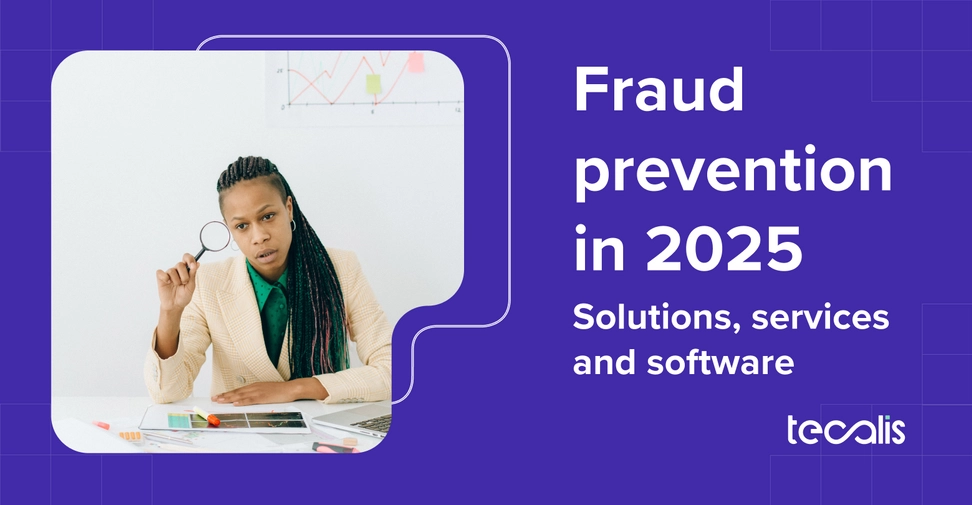Index
Get the latest news right in your inbox
Fraud prevention has taken on decisive importance for businesses in recent years. With the rise of digital operations and the increase in crimes such as identity theft, companies have decided to establish risk management policies either because industry regulation obliges them to or simply to avoid having to deal with the consequences of an attack aimed at their security or that of their users and customers.
The losses caused by these criminal acts, which occur on an occasional basis and generate large costs, range from intangible losses in terms of image, reputation and the ability to obtain new customers and retain current ones, to the payment of severe financial penalties.
What is fraud prevention?

Fraud prevention is the modification of business processes in such a way that they contain tools and systems with techniques capable of deterring fraudsters or integrating controls that paralyze a fraud attempt before it can occur or create consequences. In other words, it is the business discipline dedicated to establishing plans and guidelines to ensure that fraud does not occur both internally and externally within the company.
While the concept of fraud prevention has generally been associated with the banking sector and financial institutions, this area applies to all industries. Especially now that all businesses operate online, no one is safe from fraud risks.
According to recent studies, the fight against fraud now accounts for more than 82% of the investment in companies' risk management strategies. More and more people are trying to commit this crime and are using innovation and cunning to design complex systems to circumvent the security of some businesses. Fortunately, fraud prevention professionals and companies have created new solutions and applications that keep fraudsters at bay.
Types of fraud
The fraud committed can be both internal and external. This differentiates between wrongful acts committed by employees, suppliers or partners of the company and those committed by external users (potential customers, de facto customers or users) who in order to commit a crime need to make use of a company's products, services or platforms.
External frauds are the most common and sensitive, as there is less control over users outside the organization. A good way to avoid internal fraud is to raise employee awareness and create a culture of accountability with a strong sense of responsibility and a strong sense of the guidelines set out in a code of ethics and conduct signed by all employees, suppliers or partners.
Establishing internal fraud prevention policies is not only a legal obligation in many sectors, but also a way to create a responsible, conscious and committed corporate culture. Giving visibility to the CCO (Chief Compliance Officer) and conducting ongoing training is a sure way to prevent internal fraud.
One of the most common types of internal fraud is the inclusion of old expenses (with 30% of the total fraud in the surveyed companies). These generally do not correspond to a business expense reporting period; limiting or digitizing 100% of their immediate upload is a sure way to avoid their commission.
Submitting the same ticket multiple times or an altered ticket, usually with changes in the amount due to fraudulent alteration stand out as common frauds. This can be easily solved with KYB (Know Your Business) electronic signature and OCR solutions that perform integrity and originality checks in seconds on invoices and other tickets before sending or uploading them to the system.
As we have already mentioned, the most common type of external attackers are those who commit fraudulent activity through customer-facing platforms. However, there are also other types of fraud such as those that originate in the incursion into the company's systems through malware, ransomware or spyware.
Denial-of-service (DoS) techniques do originate from the use of platforms aimed at potential customers, but their use is not based on single-identity spoofing. In other words, instead of accessing a system as a single user, thousands of contact form requests are launched under false identities until the business is saturated.
Tax fraud: considerations
The prevention of tax fraud is one of the controls included in the anti-money laundering strategies (AML tools). Tax fraud is the avoidance by a citizen or legal entity of its tax obligations through different mechanisms.
The main mechanism of tax fraud that should be of concern to fraud prevention specialists is the laundering of capital through the use of the services of a business. This is where impersonation or the transfer of funds to accounts comes into play, which leads us to take into account the figure of the figure of the front man.
Establishing anti-fraud controls that comply with regulations such as AML6 (Sixth Anti-money Laundering Directive) eradicates the possibility of tax fraud by criminals through our business activity. Its classification as a crime is in the penal codes and the rules for companies included in directives such as the aforementioned 6AMLD. All the states have made their national and even regional transposition to their laws of prevention and fight against tax fraud.
Fraud detection digital solutions

The steps to follow to establish a fraud prevention strategy range from the analysis of the company's processes in all phases of the customer journey - as well as internal operations - to the implementation of fraud prevention solutions in each of these processes.
Today, the best fraud prevention and detection solutions are based on automated systems with artificial intelligence and machine learning technologies. Especially in the banking, financial and insurance sectors, Know Your Customer (KYC) policies have radically curbed fraud in these industries.
This sector - the BFSI area - has been a pioneer in the implementation of these KYC anti-money laundering systems for two reasons: its connection with RegTech players and the drive of regulators to legislate to force this industry to transform its processes to create a safer and more secure financial system.
However, these systems have been extended to all sectors of activity as a star measure to detect and eradicate fraud. The benefits of fraud prevention software are innumerable: from avoiding the huge costs of dealing with attacks once they have happened to the growth in customers and users due to the improved perception and reputation of being a secure business.
According to recent studies, some businesses take up to 18 months to detect fraud. However, in most cases, it only takes a few minutes to have to deal with fraud, which can lead to penalties or compensation of tens of thousands of euros or even the partial or total stoppage of the business's activity. According to the Association of Fraud Examiners, a single attack costs on average $145,000 in damages.
Prevention and detection solutions
Therefore, betting on the best technology is critical for any business that wants to grow and be sustainable. The diagnosis and improvement of fraud prevention programs must guide the adoption of these automated systems. Risk assessments - part of risk management strategies - are the first step in making decisions about a comprehensive and integrated fraud prevention software.
You should start by designing operational models with a mapping of all the organization's processes, both internal and those involving the thousands of daily customer operations. Once this is done, you can count on expert RegTech providers that offer anti-fraud services and tools in SaaS model that can be implemented in days and that do not condition the future of the company, since they work on a pay-per-use scheme.
From the well-known KYC identity verification controls, to the most advanced onboarding systems and strong customer authentication platforms that comply with SCA schemes, the development of predictive models with machine learning is already a reality thanks to RPA API tools.
An important thing to keep in mind is that any business can integrate it in days. This is not only aimed at large companies and financial institutions but also any SME in any industry can implement it in Deploy&Go format without a large investment.
Electronic signatures and certified communication, on the other hand, have helped to resolve fraud-related disputes thanks to full traceability of operations, leaving electronic evidence for any evaluation.
Fraud Prevention Act

The prevention of money laundering is one of the central axes around which work is being done to establish legislation in this area. However, there are a variety of laws that apply to prevent all types of fraud. The various governments and regulatory bodies are also establishing anti-fraud measures by issuing documents with guidelines for the reinforcement of fraud prevention solutions, detection and correction mechanisms. Likewise, whistle-blowing channels and training initiatives have been opened for company professionals.
PSD2 (Payment Services Directive 2) and its SCA (Strong Customer Authentication) standard are mandatory European directives that have completely transformed the security and fraud prevention measures applied by online businesses. The older eIDAS established at the time a secure framework in which companies and consumers can operate away from attacks and fraud attempts.
Regarding the specific law for the prevention of tax fraud in Spain, for example, the last update was approved in July 2021. It highlights its section on investment instruments that now begins to put focus on trading platforms and cryptocurrencies as well as its last part in which a package of measures is developed that includes mandatory compliance with the anti-fraud prevention manual for companies in sectors such as gambling.
























